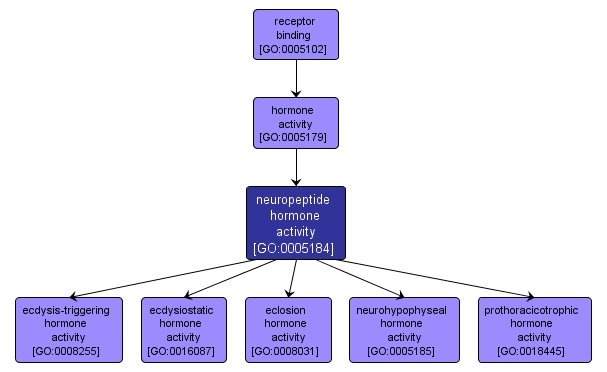| Desc: |
The action characteristic of a neuropeptide hormone, any peptide hormone that acts in the central nervous system. A neuropeptide is any of several types of molecules found in brain tissue, composed of short chains of amino acids; they include endorphins, enkephalins, vasopressin, and others. They are often localized in axon terminals at synapses and are classified as putative neurotransmitters, although some are also hormones. |














